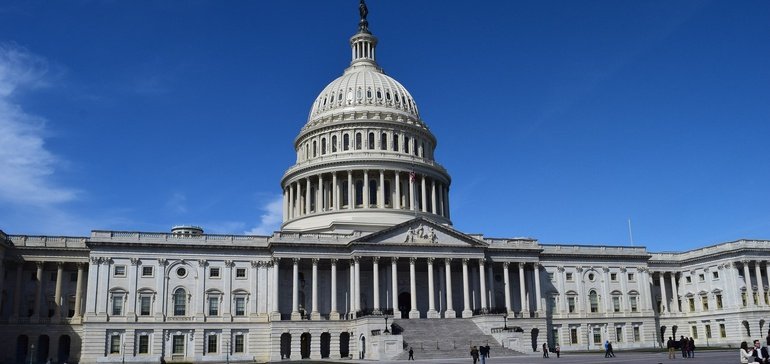
Dive Brief:
- A bipartisan group of House and Senate leadership announced Sunday they had reached an agreement on a legislative ban to surprise medical billing that includes an arbitration element, though other details are still being worked out.
- Some key lawmakers, however, are not yet fully on board. A trio of Democratic Senators who have been involved in negotiations said in a statement they “are encouraged we’re one step closer” but stopped short of endorsing the bill package.
- The legislation includes other provisions, such as funding for community health centers, raising the tobacco purchasing age to 21 and efforts to lower prescription drug prices and foster price transparency.
Dive Insight:
Congress is running out of time to pass a surprise billing ban before the end of the year, when analysts agree the effort would die out as a new session dives into a presidential election year.
Lawmakers have had bipartisan agreement that a federal ban should be enacted, but have disagreed about how out-of-network care should be paid for. Key methods include set rates for those services (such as a percentage of Medicare rates) and an arbitration dispute resolution when insurers and providers can’t agree on payment terms.
A final proposal may include both measures, though it seems that industry groups may stay dug into their trenches instead of embracing a compromise.
The statement from Senate Health Committee Chairman Lamar Alexander, R-Tenn., and House Energy and Commerce Committee Chairman Frank Pallone, D-N.Y., and Ranking Member Greg Walden, R-Ore., “said the proposal would end surprise billing of patients and include a new system for independent dispute resolution often called arbitration.”
Doctors and hospitals have lobbied heavily against set rates while payers have pushed back on arbitration. Both sides have thrown gobs of money behind their efforts, including through private-equity backed groups being investigated by Congress for their role.
That intervention and a busy end of the year for Congress — as it faces a government funding deadline and continues impeachment proceedings — stalled surprise billing legislation for several months. But this weekend’s announcement brought hope for some patient advocates
Loren Adler, associate director of the USC-Brookings Schaeffer Initiative for Health Policy, wrote on Twitter the safety valve “isn’t great policy, as it unnecessarily risks increased costs for consumers without any clear upside,” but added that depending on the details “it can still be a clear improvement over the status quo.”
Industry groups are also awaiting more information on what exact provision would be included in the bill.
The American Hospital Association warned in a statement it would continue to oppose any legislation that includes a benchmark rate. “An arbitrary rate gives insurers an incentive to remove hospitals from their networks and force artificially low reimbursement rates, which limits access,” the group wrote. “Moreover, such proposals would provide a huge windfall to commercial insurance companies at the expense of the nation’s community hospitals.”
The Coalition Against Surprise Medical Billing, which is backed by multiple payer and employer groups, including America’s Health Insurance Plans, urged Congress not to include arbitration, saying it creates loopholes for providers to exploit. “The result of arbitration is that consumers, employers, unions and taxpayers pay the price,” the coalition wrote in a statement.
The White House has supported a surprise billing ban in the past, but not been on the side of arbitration.
A federal ban would be a major step in getting rid of the practice that has frustrated many Americans who get an often large healthcare bill they weren’t expecting. It often happens when they receive care for an out-of-network provider even though they went to an in-network facility. A number of states have enacted bans, but those efforts are limited because they can’t affect employer-based plans, which cover most people in the U.S.
